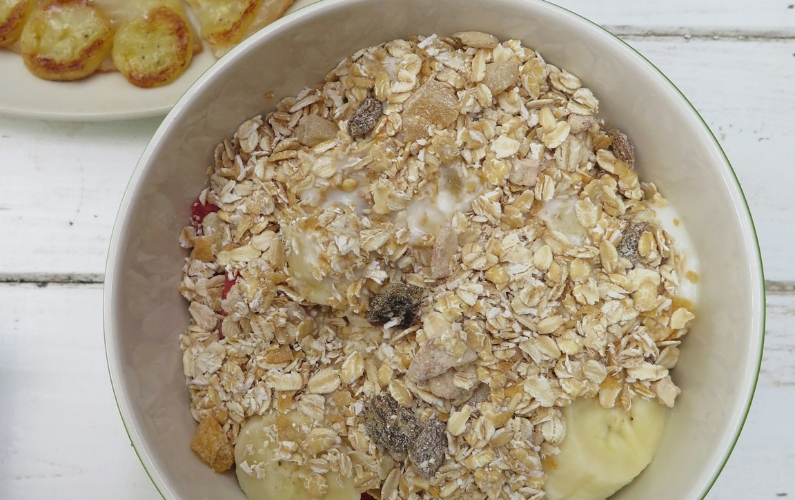The gut microbiome, a vast ecosystem of trillions of microorganisms in our digestive system, is essential for maintaining overall gut health, from digestion to mental well-being. Recent scientific advancements reveal that the gut microbiome’s influence extends far beyond digestion, affecting mental health, immune function, and chronic disease prevention. This blog explores the science of the gut microbiome, its vital role in gut health and overall wellness, and practical ways to optimize your gut health through diet and lifestyle. If you’re ready to take control of your health, the journey starts in your gut.
What is the Gut Microbiome?
The gut microbiome is composed of bacteria, viruses, fungi, and other microorganisms living in your intestines. These tiny organisms perform essential functions such as digesting food, producing vitamins, and protecting against harmful pathogens. Importantly, they help maintain the integrity of the gut lining, which prevents harmful substances from entering your bloodstream and causing inflammation.
A healthy, diverse gut microbiome is essential for maintaining optimal gut health and overall well-being. Imbalances in the gut microbiome, known as dysbiosis, can lead to various health problems, including digestive issues, mental health disorders, obesity, and chronic inflammatory diseases. Factors such as diet, stress, and antibiotic use can significantly influence the composition of your microbiome.
Struggling with digestive issues or think your gut might be out of balance? At Carencia, our comprehensive gut microbiome test offers personalized insights to help you start improving your gut health. Take the first step towards well-being—schedule your test with Carencia today.
The Gut-Brain Axis: Connecting Your Microbiome and Mental Health
One of the most groundbreaking discoveries in recent years is the link between gut health and mental health through the gut-brain axis. The gut-brain axis, a two-way communication system, connects the gut and brain via the nervous system, immune signals, and hormones, demonstrating the profound impact of gut health on mental well-being. According to research by Cryan et al. (2019) , gut microorganisms produce neurotransmitters such as serotonin, dopamine, and gamma-aminobutyric acid (GABA), which directly regulate mood and emotional well-being.
Several studies have shown that imbalances in gut bacteria are associated with mental health issues like depression and anxiety. Dinan & Cryan (2013) found that individuals with a more diverse microbiome tend to have lower levels of anxiety and depression, likely because certain gut bacteria regulate the production of mood-enhancing chemicals. Dysbiosis can cause a ‘leaky gut,’ where inflammatory compounds enter the bloodstream, potentially disrupting brain function and worsening mood disorders.
How the Gut Microbiome Influences Mental Health and Wellness
Your gut microbiome plays a pivotal role in more than just digestion—it influences nearly every aspect of your overall health and wellness. Here are key ways a healthy gut impacts your overall wellness:
- Immune Function: Approximately 70% of your immune system resides in the gut, making it a crucial hub for immune regulation. A diverse and balanced microbiome acts as a protective shield, training immune cells to identify harmful pathogens while preventing unnecessary inflammation properly. This balance reduces the risk of infections, allergies, and autoimmune disorders while helping maintain long-term immune resilience.
- Metabolic Health: The gut microbiota is essential for metabolic processes, including breaking down complex carbohydrates and fibers into short-chain fatty acids (SCFAs). SCFAs like butyrate support metabolic functions by regulating fat storage, insulin sensitivity, and energy balance. An imbalanced gut microbiome is linked to metabolic disorders such as obesity and type 2 diabetes, as described in the study by Tilg & Moschen (2014), highlighting the need for a healthy gut to maintain optimal metabolic health.
- Inflammation Control: Chronic inflammation is a key driver of many diseases, including heart disease, cancer, and diabetes. A healthy gut microbiome contributes to the production of anti-inflammatory compounds, helps repair and strengthen the gut lining, and prevents harmful substances from entering the bloodstream. By maintaining this protective barrier, your microbiome plays a central role in controlling systemic inflammation, reducing your risk for chronic diseases. Vogt et al. (2017) found that a balanced microbiome can help manage inflammation and mitigate the effects of chronic diseases.
- Mental Health: The gut-brain axis underscores the importance of gut health for mental well-being. Gut bacteria produce neurotransmitters like serotonin, dopamine, and GABA, which regulate mood and stress responses. Research shows that individuals with a more diverse microbiome tend to experience improved mental health, including lower levels of anxiety, depression, and brain fog. Therefore, nurturing your gut may be an effective way to support emotional stability, cognitive function, and mental health.
Factors That Harm Gut Health
Several factors can disrupt the balance of the gut microbiome, leading to dysbiosis and related health issues. The most common include:
- Poor Diet: Diets high in processed foods, sugars, and unhealthy fats can promote the growth of harmful bacteria while starving beneficial microbes. Fiber-rich foods, on the other hand, support a diverse microbiome.
- Chronic Stress: Stress increases intestinal permeability, allowing harmful substances to enter the bloodstream and disrupt the microbial balance.
- Antibiotics: While essential for fighting infections, antibiotics can also eliminate beneficial bacteria, disrupting the gut’s delicate ecosystem.
- Lack of Physical Activity: Regular exercise increases gut microbial diversity, while a sedentary lifestyle can lead to dysbiosis.
- Sleep Deprivation: Lack of quality sleep disrupts the balance of your gut microbiome, raising the risk of obesity, diabetes, and mood disorders.
How to Improve Gut Health
Maintaining a healthy gut microbiome doesn’t have to be complicated. Here are some key strategies to support gut health:
- Eat More Fiber: Fiber acts as a prebiotic, feeding beneficial bacteria in the gut. To boost microbial diversity, include whole grains, legumes, nuts, seeds, and vegetables in your diet.
- Incorporate Fermented Foods: Fermented foods such as yogurt, kefir, sauerkraut, and kimchi are rich in probiotics, helping to restore beneficial bacteria and support a balanced gut microbiome. Not sure which probiotics to choose? Let our dietitians guide you through the best options for your needs.
- Limit Processed Foods: Processed foods, especially those high in sugar and unhealthy fats, promote the growth of harmful bacteria and reduce the diversity of beneficial microbes.
- Stay Active: Regular physical activity increases microbial diversity, linked to better overall health. Aim for at least 30 minutes of moderate exercise most days.
- Manage Stress: Incorporate stress-management techniques like yoga, meditation, and deep breathing to support gut health.
- Get Adequate Sleep: Aim for 7-9 hours of quality sleep each night to allow your gut microbiome to function optimally.
Gut Microbiome Testing: A Path to Better Health
Gut microbiome testing has emerged as a powerful tool for understanding your unique gut health and improving overall wellness. These tests analyze a stool sample to determine the composition of your microbiota and identify imbalances that may contribute to digestive issues, inflammation, or other health concerns.
Benefits of Gut Microbiome Testing
- Personalized Insights: A gut microbiome test can provide personalized dietary and lifestyle recommendations based on your unique microbiome profile.
- Targeted Interventions: By identifying specific imbalances in your gut bacteria, you can take targeted actions to restore balance, whether through dietary changes, probiotics, or other interventions.
- Improved Health Outcomes: Correcting gut imbalances can lead to better digestion, reduced inflammation, a stronger immune system, and improved mental health. Research by Poutahidis et al. (2013) shows that a balanced gut microbiome can accelerate wound healing through neuropeptide production and improve mental health by supporting neurotransmitter balance and reducing anxiety-like behaviors.
Unlock Personalized Gut Health with Targeted Testing
Comprehensive Gut Microbiome Testing
A comprehensive gut microbiome test offers an in-depth analysis of your gut’s microbial landscape, identifying potential imbalances, harmful pathogens, and key bacterial strains essential to health. This test also assesses markers related to inflammation, digestion, and metabolic function, providing a clear picture of your gut health. With this information, targeted interventions can be developed to restore balance, reduce inflammation, and support optimal digestive and metabolic health.
Food Sensitivity and Intolerance Testing
Food sensitivity and intolerance testing help identify foods that may trigger inflammation or digestive discomfort. By pinpointing problematic foods, this test supports the creation of a personalized diet plan tailored to your unique needs, helping to minimize gut disruptions and promote a balanced microbiome.
Connect with Carencia to schedule comprehensive gut microbiome and food sensitivity testing. With the right tests today, you can gain clear, actionable insights to support your health and well-being!
Nutrition and Lifestyle Changes for Gut Health
While gut microbiome testing provides personalized insights, lasting improvements come from consistent nutrition and lifestyle habits. Your gut microbiome plays a crucial role in overall health, impacting digestion, immune function, mental well-being, and even your risk for chronic diseases.
Key changes—such as incorporating a diverse, fiber-rich diet, managing stress, and staying physically active—help foster a balanced and resilient gut microbiome. These simple, yet powerful adjustments not only improve digestion but also enhance your mental clarity and strengthen your immune system.
Ready to take control of your gut health and well-being?
Take the first step toward a healthier mind and body by scheduling a consultation with Carencia’s expert dietitians. We’ll help you interpret your gut microbiome results and develop a personalized plan to address digestive health, strengthen immunity, and support mental well-being. Unlock the benefits of a balanced gut and a balanced life-begin your journey today.
FULLSCRIPT
Care when you need it.
Probiotics and prebiotics each play a crucial role in gut health. Probiotics restore beneficial bacteria, supporting digestion, gut health, and even mental well-being through the gut-brain axis. Prebiotics, like inulin, act as a food source for these good bacteria, helping them thrive and promoting a balanced gut microbiome.

Research References:
- Cryan, J. F., et al. (2019). “The microbiota-gut-brain axis in health and disease.”
https://doi.org/10.1016/j.gtc.2016.09.007
- Dinan, T. G., & Cryan, J. F. (2013). “Melancholic microbes: A link between gut microbiota and depression.”
https://doi.org/10.1111/nmo.12198
- Tilg, H., & Moschen, A. R. (2014). “Microbiota and diabetes: An evolving relationship.”
https://doi.org/10.1136/gutjnl-2014-306928
- Vogt, N. M., et al. (2017). “Gut microbiome alterations in Alzheimer’s disease.”
https://doi.org/10.1038/s41598-017-13601-y
- Poutahidis, T., et al. (2013). “Microbial symbionts accelerate wound healing via the neuropeptide hormone oxytocin.”

